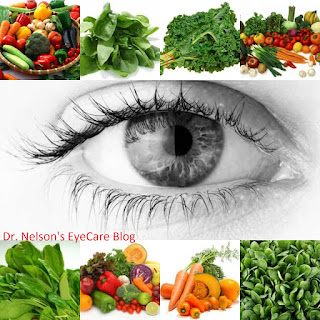The eye is an organ that is relatively more exposed to the
environment. The eye is affected by oxidative stress due to its physical and
metabolic characteristics. All ocular tissues and fluids are susceptible to
damage by oxidative stress.
Nowadays, there are more patients seeking treatment for eye
diseases. The main cause of this increase can be attributed to xenobiotics
caused by environmental pollution and increasing ultraviolet radiation
intensity.
There is a change in lifestyle with an altered dietary
intake with a reduced amount of natural antioxidants due to an increase in fast foods with more fats and carbohydrates, which is
made worse by physical inactivity. There are increasing numbers of patients
with degenerative diseases such as diabetes, Age-related macular degeneration
and cardiovascular (heart) problems.
All the above factors can generate harmful chemicals to eye
tissues called oxidant agents or free radicals. To protect against external
agents, the eye has several nonspecific defense mechanism, such as eyelids,
tear film, cornea and lens. Antioxidants in the body try to come to rescue. It
is when these antioxidants are overwhelmed that the disease process begins to
accelerate.
Clinical studies have shown that photic (light) injury from
the cumulative effect of repeated ultraviolet (sun) rays leading to a gradual
loss of photoreceptors (sensitive eye receptors in the retina that receives and
transmits viewing image information to the brain for interpretation) is a major
cause of Age-related macular degeneration and antioxidants are postulated to
help by reducing this damage.
The most essential antioxidant for the eyes are the
carotenoids. Carotenoids are the compounds that give fruits, vegetables and
flowers their various colors. Many individuals incorporate carotenoids into
their diets, which provide them with antioxidants and a source of vitamin A.
Carotenoids of human important are; lutein, zeaxanthin,
lycopene, alpha and beta-carotenes, cryptoxanthin and astaxanthin. The retina
and choroids additionally contain lycopene, alpha and beta-carotenes. In the
ciliary body, all the carotenoids taken in foodstuff or as dietary supplement
get accumulated.
The carotenes are obtained from tuberous vegetables such as
carrots, sweet potatoes and yams while the main source of lycopenes is red
tomatoes.
Specifically for the eye, lutein, zeaxanthin and astaxanthin
have a very vital role, as these carotenoids are essential for the eye to be
protected from developing macular degeneration and cataract. Lycopene is a carotenoid which has a special place in eye
defense since it neutralizes singlet oxygen (a reactive oxygen species which
causes damage particularly in the eye).
Age-related degenerative diseases including cataract and
macular degeneration appear to be the result of oxidative stress. Taking
supplements, specifically containing zeaxanthin, lutein and lycopene in
adequate doses, is postulated to provide protection to the macular and lens.
Prevention of these eye degenerative diseases and early
medical intervention are essential, as the damage they cause is largely
irreversible. Once diagnosed, it is important to slow further progression at
any stage of development.
Protection of the lens and macular from ultraviolet rays and
hazards of smoking with a healthy diet, sunglasses and lifestyle such as avoiding smoking and
inactivity must be emphasized.


No comments:
Post a Comment
We love to hear from you!
Please share your thought here!